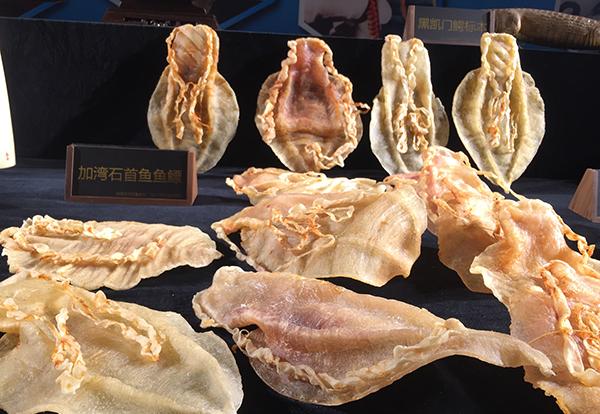
Shanghai Customs seized totoaba maw in the Gulf of California. The pictures in this article are all pictures of The Paper's reporter Li Jiawei
On March 10, in the VIP lounge of Shanghai Pudong International Airport, Jiang Lili (pseudonym), who was six months pregnant, was taken away by Shanghai customs officers on her way to Jieyang (Shantou) on her way to Jieyang (Shantou).
In a black suitcase that Jiang Lili checked in from Mexico, customs found 122 fish maws. After professional identification, these swim bladders are all totoaba maws in the Gulf of California, which are endangered species in CITES Appendix I, with a case value of about 15 million yuan. This is the first case of smuggling of totoaba maw in the Gulf of California seized at the Shanghai port in 2019.
Some smuggled products of endangered species seized by Shanghai Customs in 2019.
At present, the smuggling of such endangered species has taken on new characteristics and has become the focus of the customs department's crackdown.
On May 10, a reporter from the surging news (www.thepaper.cn) learned from Shanghai Customs that from January to April 2019, Shanghai has seized 92 illegal cases of smuggling involving endangered species such as ivory and their products, 10.2 times that of the same period in 2018.
Among them, customs seized 10.26 kg of ivory products, 316.6 kg of pangolin scales (case value of more than 13 million yuan), 653 totoaba maws in the Gulf of California (case value of more than 66 million yuan), in addition to 438 tons of hedgehog rosewood, 80 tons of sandalwood rosewood, as well as nearly 1,000 pieces of dried seahorses, hippopotamus teeth, pangolins, hawksbill turtles, fur seal skins, etc.
Ivory and its products seized by Shanghai Customs.
Python skin seized by Shanghai Customs.
Shanghai Customs said that combined with the recently seized cases, the current illegal activities of smuggling endangered species and their products mainly present the following five characteristics:
First, postal and freight transport have become the main channels for smuggling. Endangered animals and products are mostly smuggled into the country by mail or baggage because of their small size and high value, and endangered plants are mainly smuggled into the country through freight channels through false declarations and other means.
Second, the types of smuggled species are becoming more and more diverse. In addition to traditional smuggled species such as ivory and pangolin scales, the number of species that were rarely found at The Shanghai port in the past, such as Jiawan totoaba, hippotamus tooth and small leaf rosewood, is also increasing, reflecting the trend of smugglers migrating north from the southern port.
Third, the sources of smuggling are relatively concentrated. The origins of the species involved in the case seized by Shanghai Customs are mainly from Nigeria in Africa, Britain and Italy in Europe, and Japan in Asia.
Fourth, the characteristics of gangs are becoming increasingly obvious. The gang involved in the case has a strict organizational structure and a clear division of labor, and sets up a company abroad, with overseas employees responsible for procurement, some employees responsible for carrying them in, and domestic consignees responsible for selling and returning funds, forming a complete smuggling chain.
Fifth, the identity of smuggling subjects is relatively fixed. Mainly migrant workers who return to China to visit relatives and take vacations, but also those who have entered and left the country for several short periods of time and have sold goods abroad.